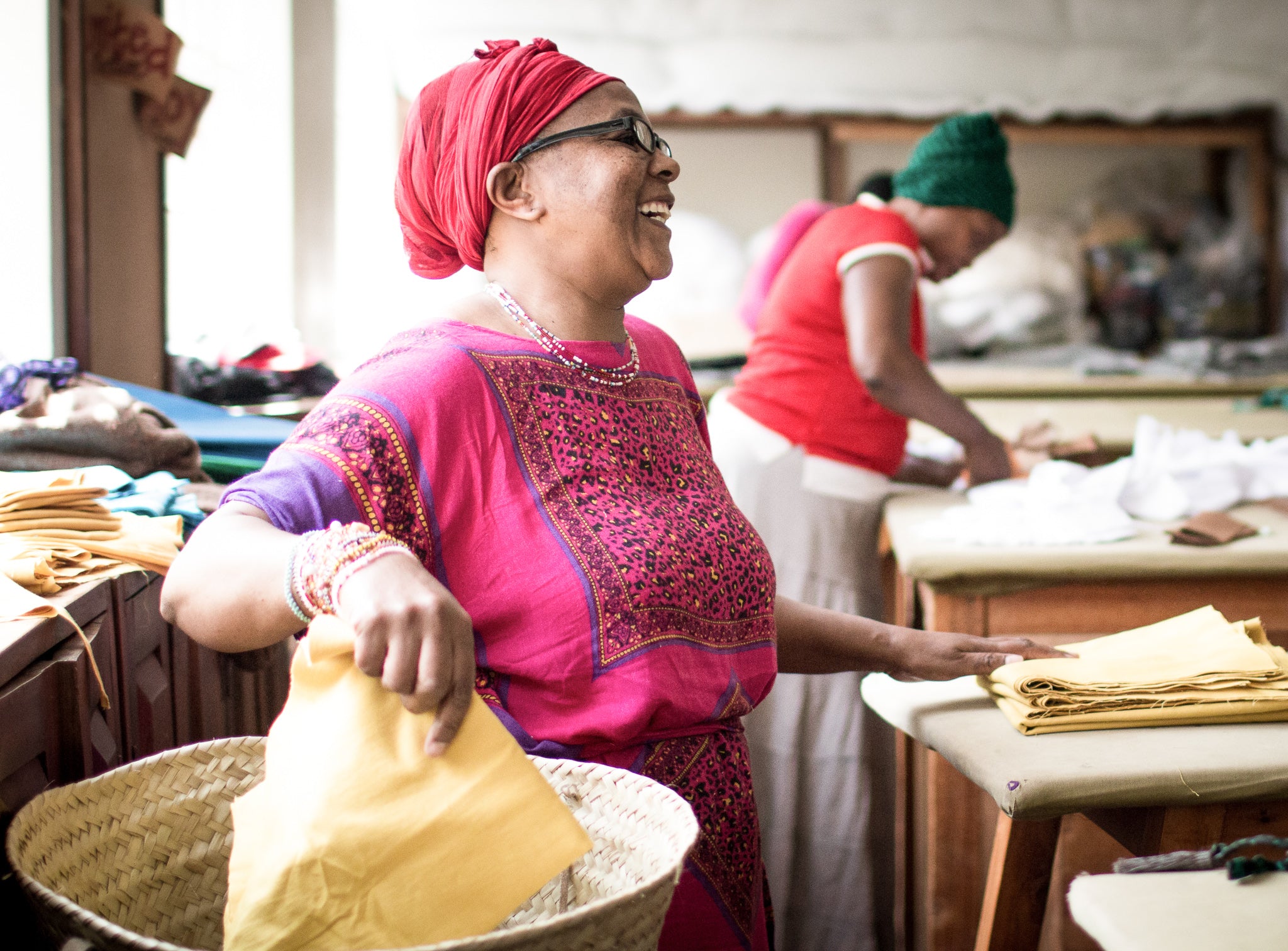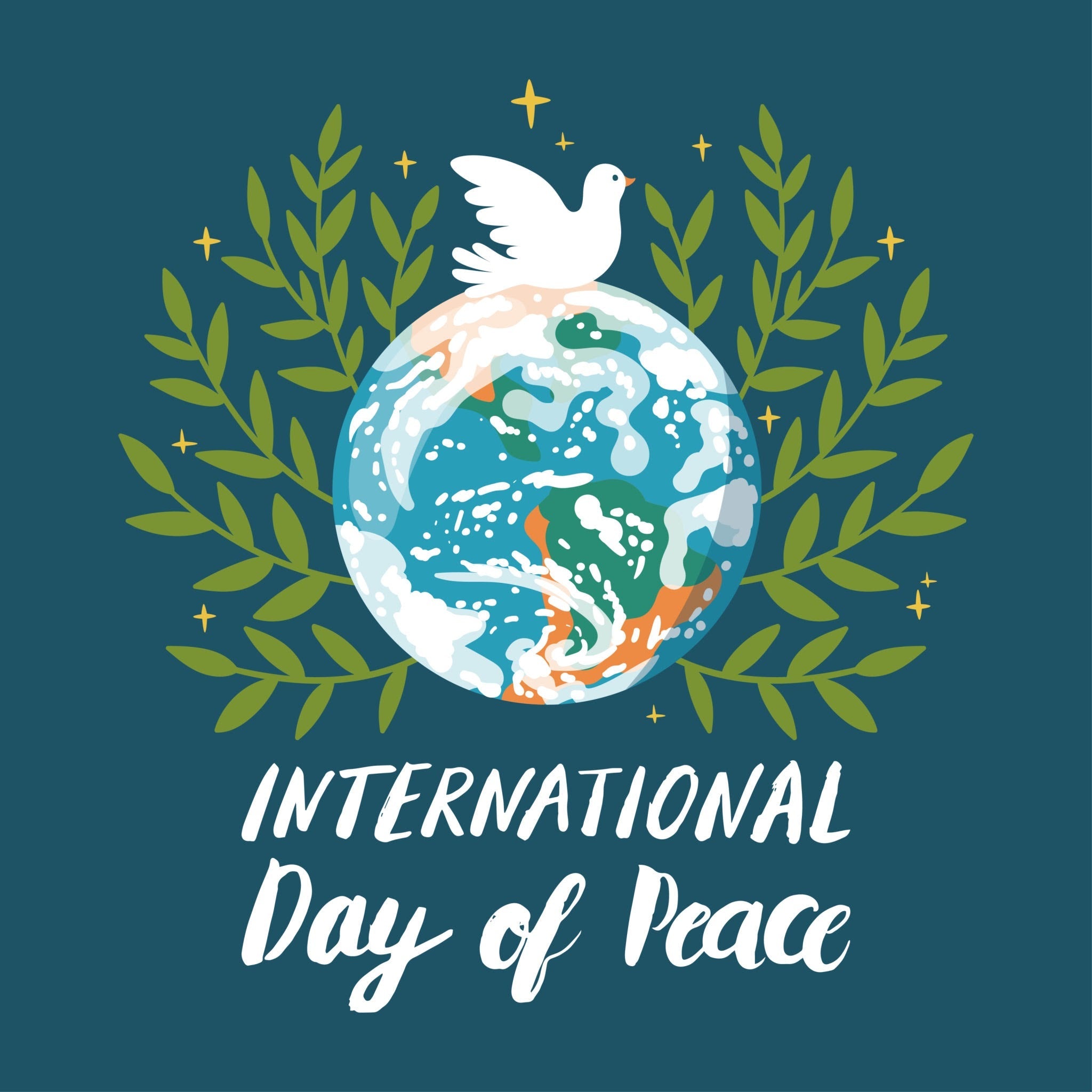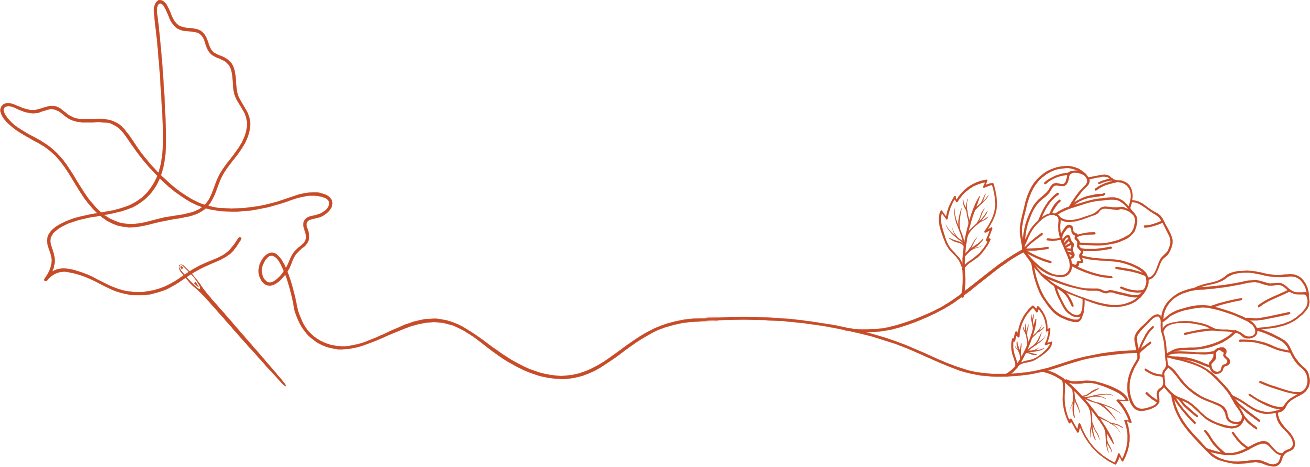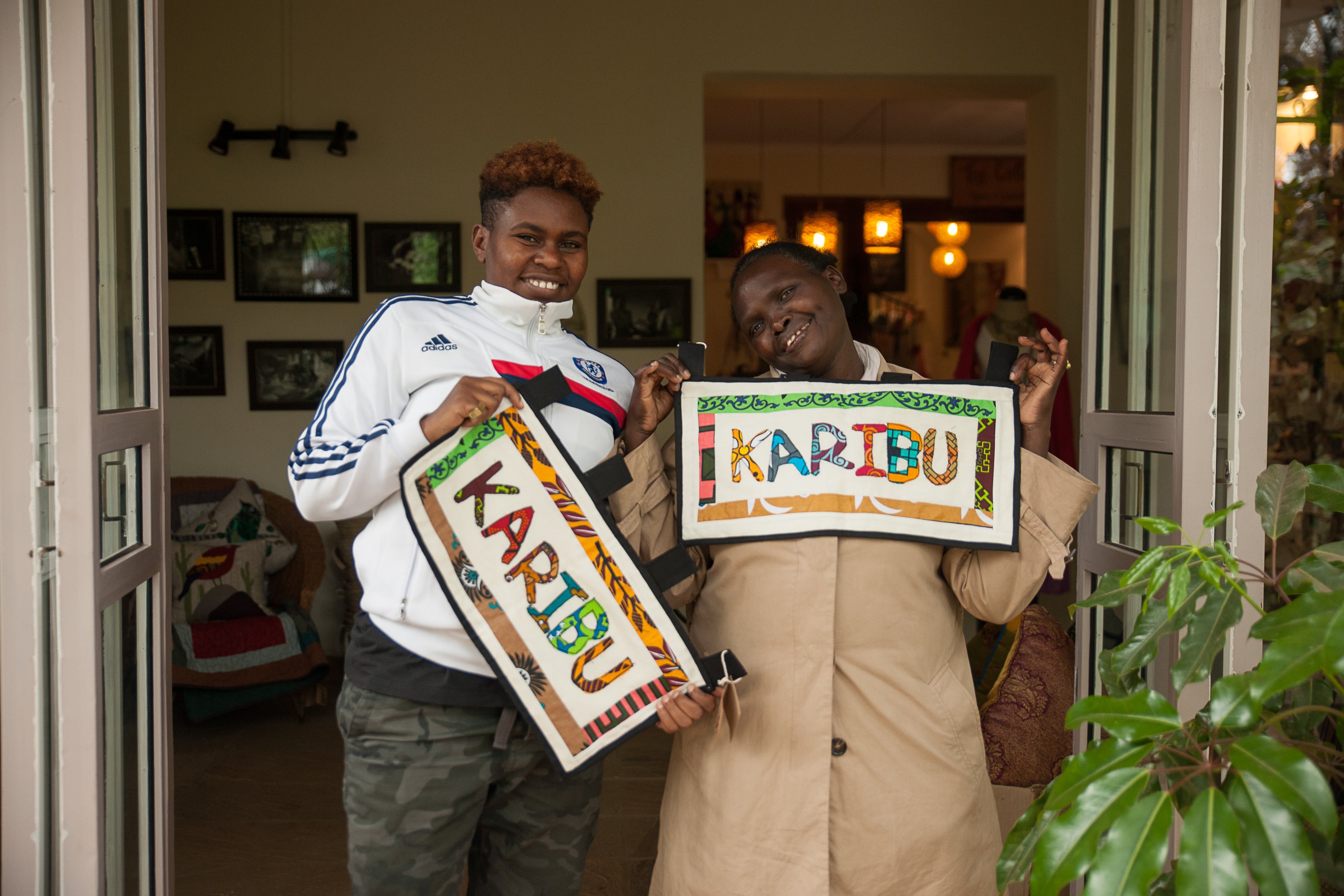
Industry Meets Humanity

Have you ever felt a little sheepish admitting where you purchased some of your clothes? The vitriol and sensationalism aimed at the fashion industry and we, her patrons, is so prevalent that it is easy to find ourselves carrying around a latent sense of guilt about what we buy. A lot of the condemnation can even come from well-meaning ethical or fair trade companies, communicating legitimate concerns. Not having studied the industry deeply, though, how can you know whether or not it is ok to just buy that pair of socks you need without forking out to have them all-natural, ethically sourced, organic and certified fair trade? Amani has been on the ground for 20 years, we know the industry, and we have a level-headed perspective to offer you. The fashion industry is very important for many developing countries, but there are also a lot of ways that it needs to be improved, and we have a biblical foundation for why we should pay attention.
The reality is we need industry! The purpose of developing industry in a country is to increase the quality of life for the entire nation. As moral philosopher Will MacAskill pointed out in a recent TED talk, until the scientific and industrial revolutions, “for the vast majority of human history, pretty much everybody lived on the equivalent of a dollar a day.” Since those revolutions, the world GDP per capita has increased many thousand-fold, leading MacAskill to observe that, “in terms of power to change the world, we live in an unprecedented time in human history."1 This can be seen clearly in the developmental “winners” throughout the world, those 1st world countries who enjoy an average quality of life unimaginable before. Big industry, despite many problems, is the main way to build up countries. It provides jobs, brings up conjunctive industries, and stimulates the economy in general by creating more disposable income. It is especially vital because it allows those in 3rd world countries to work jobs when there may literally not be another option for work.
Many in the West have a conception of rural life in 3rd world cultures as intimate, simple, beautiful, idyllic. There is something about small communities and a connection to nature that is certainly blessed, but it doesn’t shake the fact that the Fall happened, which means that crime happens, disease happens, and food only comes by the sweat of someone’s brow. There is a reason why those rural people flock to the cities to try to find work. In a slum, life is not simple or beautiful. The garment industry, along with others, brings work opportunities to 3rd world countries, and it is one of the few that provides significant opportunity to women. There are 40 million garment workers in the world today, and roughly 85% of them are women.2 Jobs are needed in 3rd world countries, and the garment industry provides a lot of them.
Although the garment industry is important, it is known for feeding on cheap labor, loose laws, and expendable workers. Greed also came with the Fall. Things which were once designed to function smoothly and with beauty are distorted, just as they did with the concept of work we discussed in our last blog. Garment production in poorer countries offers needed investment and employment, but there is a competitive requirement “for poorer countries to offer the cheapest workers and the most flexible (unregulated) conditions.”3 Research and first hand accounts have shown that the garment industry is in major need of remodeling and accountability. Reform needs to come to change low wages, unsafe work environments, and stagnant growth to impoverished communities.
In regard to wages, underpaying employees is industry standard in developing economies. An example can be seen in the city of Fez, Morocco. The garment industry in Morocco has burgeoned since the 1980s, and shop floor labor is overwhelmingly female. The minimum legal wage in Fez is $120 per month (full-time) before overtime, yet most workers report making $30-$80 a month, working overtime without a raise in pay rate, working overnight to meet deadlines, and even “sleeping at the factory.”4 Bangladesh is another country in which the garment industry has flourished. Within the span of 15 years, Bangladesh became the eighth largest garment exporter to the US, employing primarily women for the manufacture of goods.5 Women in Bangladesh refuse to unionize and speak up about their work status for fear of their small wages being stripped and passed to another seeking work. On average, women in Bangladesh make 65% of the pay of a male worker.6 The suffocating situation in Bangladesh takes away the voice of women to act on their own behalf.5 The free market naturally drives manufacturers to lower their cost to stay competitive and to increase profits, but in a context of poverty, lowering costs means capitalizing on the desperate life situation of employees, who will work for the little money that they can get.
The drive to lower production cost also means investing as little in the production environment as necessary. Considering financial statements rather than people means that an unsafe working environment makes sense as long as the monetary cost of loss doesn’t outweigh the gain. In the book Clothing Poverty, Andrew Brooks describes every detail of the jean manufacturing process, including that formaldehyde and other harmful chemicals and chemical combinations are used, usually without the proper safety equipment.7 Brooks also reports that in China workers are treated as a machine: there are no breaks, no standing or talking, and one must ask to use the restroom. Because of the unsafe and unregulated working environment many injuries occured on the job without compensation.8 There are many examples of extreme negligence in safeguarding workers, the most glaring being the 2013 collapse of the Rana Plaza building in Bangladesh. It was reported that workers refused to enter the building due to large daunting cracks in the wall. The owner allegedly paid gang member to beat the workers, forcing them to work in the factory, as well as threatening to withhold their previous earnings. Within the hour the building collapsed, falling downward, one floor covering another, the end result being 1,134 dead.9
Though industry is meant to develop a corporate people, the consumer tendencies and greed that currently drive the worldwide garment industry have moved the average worker minimally above the dollar-a-day floor for survival, stagnating development. A clear example of this is seen in Mozambique, an African country known for moving so smoothly from warfare to peace and stability; yet the harsh reality is that their country is suffocated. Although they have experienced some economic growth, specifically in the clothing sector, the country has yet to see a reduction in poverty. While there is demand in the clothing industry, manufacturers are forced to reduce the wages of the few people they can hire due to other market costs being factored into overall production. Part of the problem is that richer countries restrict imports and apply high taxes for importing items from developing countries in order to safeguard their own industries.10 Manufacturers only care for the bottom line, therefore the lives of the people or the economic stability of Mozambique don’t factor into their operation. Not only does this model hurt laborers directly, it also creates an unsustainable economy since manufacturers will easily move their production sites wherever it costs least to operate.11
 The awareness of such injustice intimately entwined in something we frequently and casually do, buying clothes, elicits strong emotions in us. As we eluded in the introduction, it can be seen throughout many social media trends, documentaries, news reports, articles...pretty much anywhere ideas are disseminated: a powerful mixture of compassion and anger. This is basically good. It is the image of God displayed in mankind. Repeatedly in Scripture we see God summarize the heart of religion as doing justice to the “the quartet of the vulnerable,” the widow, the orphan, the foreigner and the poor.12 A succinct statement can be found in Zechariah 7:10-11:
The awareness of such injustice intimately entwined in something we frequently and casually do, buying clothes, elicits strong emotions in us. As we eluded in the introduction, it can be seen throughout many social media trends, documentaries, news reports, articles...pretty much anywhere ideas are disseminated: a powerful mixture of compassion and anger. This is basically good. It is the image of God displayed in mankind. Repeatedly in Scripture we see God summarize the heart of religion as doing justice to the “the quartet of the vulnerable,” the widow, the orphan, the foreigner and the poor.12 A succinct statement can be found in Zechariah 7:10-11:
This is what the LORD Almighty says:
Administer true justice, show mercy and compassion to one another. Do not oppress the widow or the fatherless, the immigrant or the poor.
God calls his people amidst their rebellion to “cease to do evil, learn to do good; seek justice, correct oppression…”13 But we must do so with wisdom. A strong reaction that is not thought through may assuage our immediate feelings of guilt while actually making the situation worse! Oxfam, an organization aimed at alleviating poverty worldwide, reports that, “jobs [in the garment sector] currently fail to meet their full potential for poverty alleviation, owing to precarious employment conditions; however, wages still form an essential part of workers’ livelihoods and make enormous contributions to family income.”10 To impulsively move to not purchasing mass-produced clothing or to call for factories to shut down eliminates this enormous contribution to family incomes. As Jesse Kline reported in The National Post, “Faced with the threat of the U.S. and other Western nations banning imports from the country in the early 1990s, factories in Bangladesh fired 30,000 child workers. According to the British charity Oxfam, these kids didn’t go back to school or find better lives. Most of them took worse jobs or ended up on the streets. Thousands of children went into prostitution.”14
So what do I do?
- Consume fewer, better quality goods— Novelty is far more pernicious than we would expect. Getting something new fixates us, driving the market towards increasing amounts of goods that are more disposable because of their cost and cheaper construction, allowing us to replace it with something else that is newer. The speed with which fashion changes yields only poisonous fruit personally, in worldwide economy, in the environment, and in culture. Buy quality goods to last and there is an abundance of benefit, not least of which is that suppliers will give the market what it wants.
- Consume intentionally— Support companies that consciously operate with a view towards ethics as well as profits. As you may know, Amani is a fair trade company! We are an example of how the fashion industry can redeem the beauty of God in design and in the workspace. Our women are paid a fair amount for each item they make individually, beyond Kenyan minimum wage. They work where their gifting lies with the time and space to work in comfort, and they are paid for each item they produce, meaning they are rewarded for skill and they can set their own income. A safe work environment and safety supplies mean the women work in peace of mind. We make provision for mothers, helping to keep families healthy. At Amani we are not driven by profit but rather the opportunity to provide a space for women to heal, earn a dignified income through their beautiful creations, and find whole-life peace.
- Consume with thought and grace— How do you consume with grace? It requires acknowledging that none of us is a morally perfect consumer, we just can’t be given the fallen system. So, the reasonable course of action is two-fold:
Firstly, we all ought to consume thoughtfully (oh yes, we’re pulling out a moral “ought!”) meaning consider production practices and labor ethics as we decide what we need to buy. If we do so, then we ought not feel shame when it just makes sense to buy that normal pair of mass-produced socks for your kiddos instead of dropping 25 bucks on the vegan ones. So there is grace, being gracious to yourself. Secondly, you should be gracious to others. We have to share what we know about the fashion industry to increase the number of voices advocating for change with their words and actions, but we must do so graciously. As the proverb goes, “you catch more flies with honey than with vinegar.”
In all that we do God calls us to act with honor, being His representatives on earth. As far as we can within a fallen system, we should promote quality, beauty, justice and love in the everyday things that we do. Paul wrote an excellent summary of how to be God’s representative in a fallen world in Philippians:
Finally, brothers, whatever is true, whatever is honorable, whatever is just, whatever is pure, whatever is lovely, whatever is commendable, if there is any excellence, if there is anything worthy of praise, think about these things. What you have learned and received and heard and seen in me—practice these things, and the God of peace will be with you.15
Shop Amani. Spread Peace.
1. MacAskill, Will. “What Are the Most Important Moral Problems of Our Time?” TED, 2018, www.ted.com/talks/will_macaskill_how_can_we_do_the_most_good_for_the_world.
2. The True Cost. “Human Rights.” Copyright 2015-2018, Untold Creative, LLC. https://truecostmovie.com/learn-more/human-rights/. Accessed 10/11/18
3. Delahanty, Julie. “A Common Thread: Issues for Women Workers in the Garment Sector.” WIEGO, 1999.
4. M. Laetitia Cairoli. “Garment Factory Workers in the City of Fez.” Middle East Journal, vol. 53, no. 1, 1999, pp. 28–43. JSTOR, www.jstor.org/stable/4329282.
5. Fauzia Erfan Ahmed. “The Rise of the Bangladesh Garment Industry: Globalization, Women Workers, and Voice.” NWSA Journal, vol. 16, no. 2, 2004, pp. 34–45. JSTOR, www.jstor.org/stable/4317051.
6. Siddiqi, Dina M. “Miracle Worker or Womanmachine? Tracking (Trans) National Realities in Bangladeshi Factories.” Economic and Political Weekly, vol. 35, no. 21/22, 2000, pp. L11–L17. JSTOR, www.jstor.org/stable/4409325.
7. Brooks, Andrew. Clothing Poverty: The Hidden World of Fast Fashion and Second-Hand Clothes. Zed Books, 2015, pp. 23.
8. Brooks, Andrew. Clothing Poverty, pp. 135-136.
9. Tansy, Hopkins (23 April 2015). "Reliving the Rana Plaza factory collapse: a history of cities in 50 buildings, day 22". The Observer. London: The Guardian. Retrieved 22 June 2017, www.theguardian.com/cities/2015/apr/23/rana-plaza-factory-collapse-history-cities-50-buildings.
10. Oxfam. “Stitched Up.” Oxfam Briefing Paper. April, 2004, p. 7-8, www.oxfam.org/sites/www.oxfam.org/files/stitched.pdf.
11. Cairloi, Laetitia. “Garment Factory Workers in the City of Fez.” Middle East Institute: Middle East Journal. 1999.
12. Keller, Tim. Generous Justice. P.4
13. Isaiah 1:16-17 English Standard Version
14. Kline, Jesse. “Shutting Down Sweatshops Just Throws Workers Onto the Streets.” The National Post. April 27, 2013, nationalpost.com/opinion/jesse-kline-in-support-of-sweat-shops.
15. Philippians 4:8-9 English Standard Version
Written by Peter Vaughn, with the assistance of Danielle Rustand






Leave a comment
This site is protected by hCaptcha and the hCaptcha Privacy Policy and Terms of Service apply.